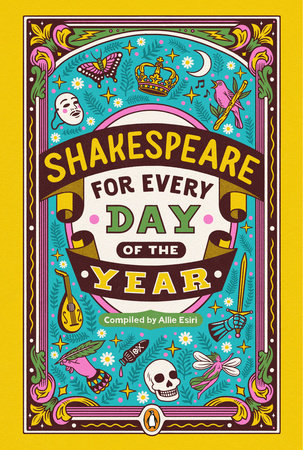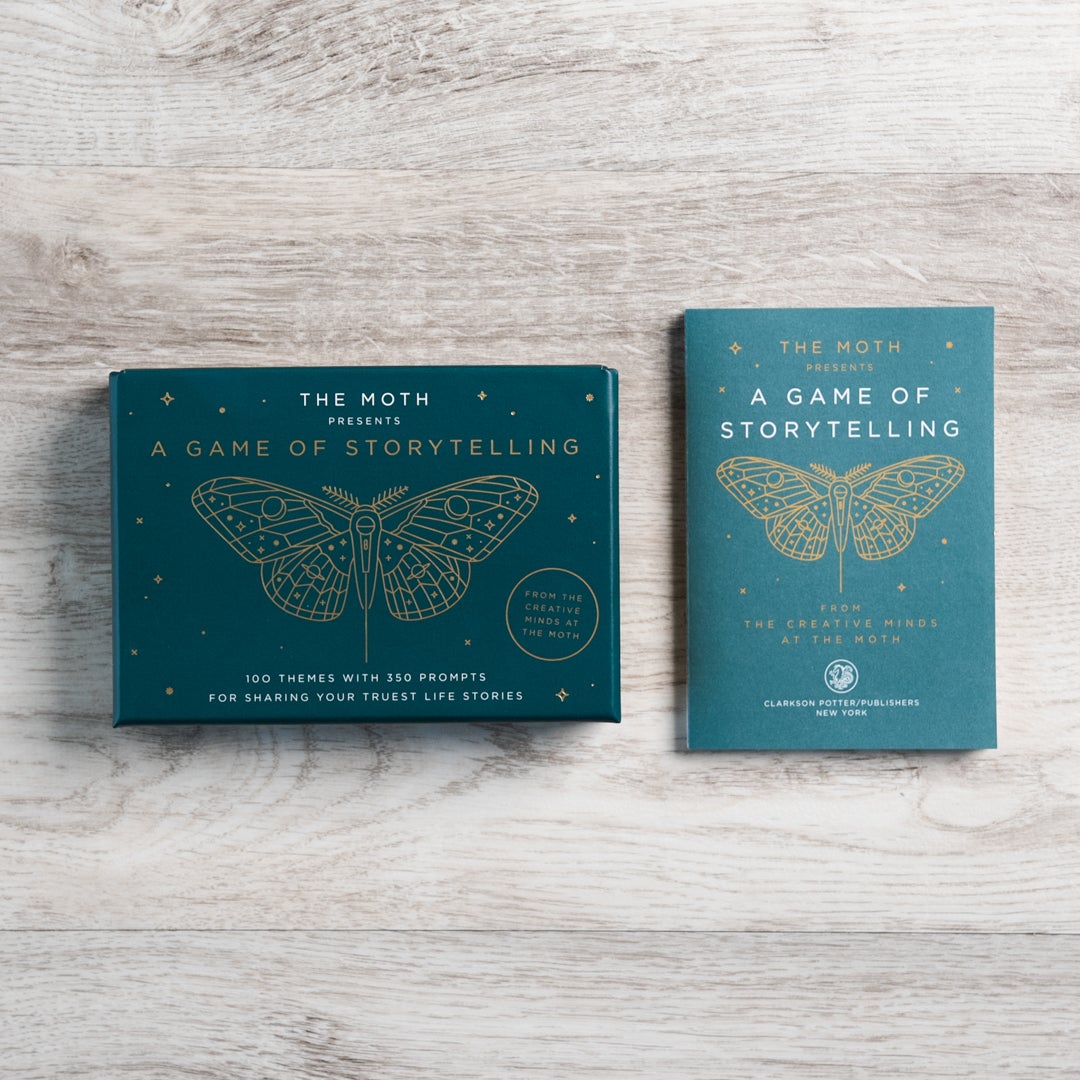January 1 | Romeo and Juliet | Prologue
Very few of Shakespeare's plays have a prologue, but among them is the following from Romeo and Juliet. It is one of the most famous openings in the canon and a fitting start for our year of Shakespeare. The Prologue tells us that these original star-crossed lovers are going to die, which amounts to something of a spoiler. Because of this, the audience knows that despite the levity and love in the beginning of the play, this couple is hurtling, unbeknownst to them, towards a tragic fate.
CHORUS
Two households, both alike in dignity
In fair Verona, where we lay our scene,
From ancient grudge break to new mutiny,
Where civil blood makes civil hands unclean.
From forth the fatal loins of these two foes
A pair of star-crossed lovers take their life;
Whose misadventured piteous overthrows
Doth with their death bury their parents' strife.
The fearful passage of their death-marked love,
And the continuance of their parents' rage,
Which, but their children's end, nought could remove,
Is now the two hours' traffic of our stage;
The which if you with patient ears attend,
What here shall miss, our toil shall strive to mend.
January 2 | Twelfth Night | Act 1 Scene 1
Shakespeare mentions food in all of his plays, and many of the associated phrases have become absorbed into modern English expressions; perhaps in your 'salad days', when 'the world is your oyster', you may find yourself 'in a pickle'. You may have fond memories of a 'feast fit for the Gods', though not in the same sense as Brutus meant it in Julius Caesar: for him, the feast is Caesar, whom Brutus hopes to 'carve up'. The opening line of Twelfth Night is one of Shakespeare's most well known. Here, the lovelorn Duke Orsino orders his court musicians to keep playing romantic tunes so that he might become sick of thinking about love, like a glutton unable to contemplate another mouthful.
ORSINO
If music be the food of love, play on,
Give me excess of it, that, surfeiting,
The appetite may sicken, and so die.
That strain again! It had a dying fall.
O, it came o'er my ear like the sweet sound,
That breathes upon a bank of violets,
Stealing and giving odour. Enough, no more!
'Tis not so sweet now as it was before.
O spirit of love, how quick and fresh art thou,
That, notwithstanding thy capacity
Receiveth as the sea, nought enters there,
Of what validity and pitch soe'er,
But falls into abatement and low price
Even in a minute. So full of shapes is fancy
That it alone is high fantastical.
January 3 | The Merchant of Venice | Act 5 Scene 1
Music is a poignant feature in many of Shakespeare's plays, just as it was important in the philosophy of his era. Pythagoras's view, which was entertained right up until the Renaissance, was that the celestial spheres on which the planets and stars move around must make a sound as they spin. He called this sound the Music of the Spheres, a principle of harmony which governs the whole universe. With this in mind, in The Merchant of Venice when Jessica says that she is 'never merry' when she hears 'sweet music', Lorenzo observes that she must be attentive to the harmony of the universe; by extension, anybody who claims to be entirely unmoved by music should be regarded with caution.
LORENZO
The reason is your spirits are attentive.
For do but note a wild and wanton herd
Or race of youthful and unhandled colts
Fetching mad bounds, bellowing and neighing loud,
Which is the hot condition of their blood,
If they but hear perchance a trumpet sound,
Or any air of music touch their ears,
You shall perceive them make a mutual stand,
Their savage eyes turned to a modest gaze
By the sweet power of music. Therefore the poet
Did feign that Orpheus drew trees, stones and floods,
Since nought so stockish, hard, and full of rage
But music for the time doth change his nature.
The man that hath no music in himself,
Nor is not moved with concord of sweet sounds,
Is fit for treasons, stratagems and spoils,
The motions of his spirit are dull as night,
And his affections dark as Erebus.
Let no such man be trusted. Mark the music.
January 4 | As You Like It | Act 2 Scene 5
Shakespeare's song lyrics use a different metrical structure from his poetry (trochaic trimeter, not iambic pentameter or tetrameter, for you poetry buffs), though most were not entirely of his own composition. Living between Stratford and London, Shakespeare absorbed the rural influences of his home town and fed them onto the stage in the city in the form of pastoral songs, usually adapted from pre-existing common ballads and folk songs. The melancholy Jaques contributes his own verse to ShakespeareÕs greenwood song, exposing the shallowness of the philosophy of this ditty: 'Ducdame' means absolutely nothing.
AMIENS
Under the greenwood tree,
Who loves to lie with me,
And turn his merry note
Unto the sweet birdÕs throat:
Come hither, come hither, come hither.
Here shall he see
No enemy
But winter and rough weather.
[. . .]
ALL
Who doth ambition shun,
And loves to live i'th'sun,
Seeking the food he eats,
And pleased with what he gets:
Come hither, come hither, come hither.
Here shall he see
No enemy
But winter and rough weather.
JAQUES
I'll give you a verse to this note, that I made
yesterday in despite of my invention.
AMIENS
And I'll sing it.
JAQUES
Thus it goes:
If it do come to pass
That any man turn ass,
Leaving his wealth and ease,
A stubborn will to please:
Ducdame, ducdame, ducdame.
Here shall he see
Gross fools as he,
An if he will come to me.
January 5 | The Merchant of Venice | Act 1 Scene 1
January is the beginning of our calendar year, named after the Roman two-headed god Janus, who faces both towards the future and back at the past. He is mentioned by Salerio in the dialogue with the inexplicably sad Antonio that opens The Merchant of Venice. Shakespeare's England was yet to embrace January as the first month, as the beginning of the year was still in the spring, on 25 March.
ANTONIO
In sooth I know not why I am so sad.
It wearies me, you say it wearies you;
But how I caught it, found it, or came by it,
What stuff 'tis made of, whereof it is born,
I am to learn;
And such a want-wit sadness makes of me
That I have much ado to know myself.
[. . .]
SALERIO
I know, Antonio
Is sad to think upon his merchandise.
ANTONIO
Believe me, no. I thank my fortune for it
My ventures are not in one bottom trusted,
Nor to one place; nor is my whole estate
Upon the fortune of this present year.
Therefore my merchandise makes me not sad.
SALERIO
Why then you are in love.
ANTONIO
Fie, fie!
SALERIO
Not in love neither? Then let us say you are sad
Because you are not merry; and Õtwere as easy
For you to laugh and leap, and say you are merry
Because you are not sad. Now, by two-headed Janus,
Nature hath framed strange fellows in her time:
Some that will evermore peep through their eyes
And laugh like parrots at a bagpiper,
And other is such vinegar aspect
That they'll not show their teeth in way of smile
Though Nestor swear the jest be laughable.
Copyright © 2020 by Allie Esiri. All rights reserved. No part of this excerpt may be reproduced or reprinted without permission in writing from the publisher.





